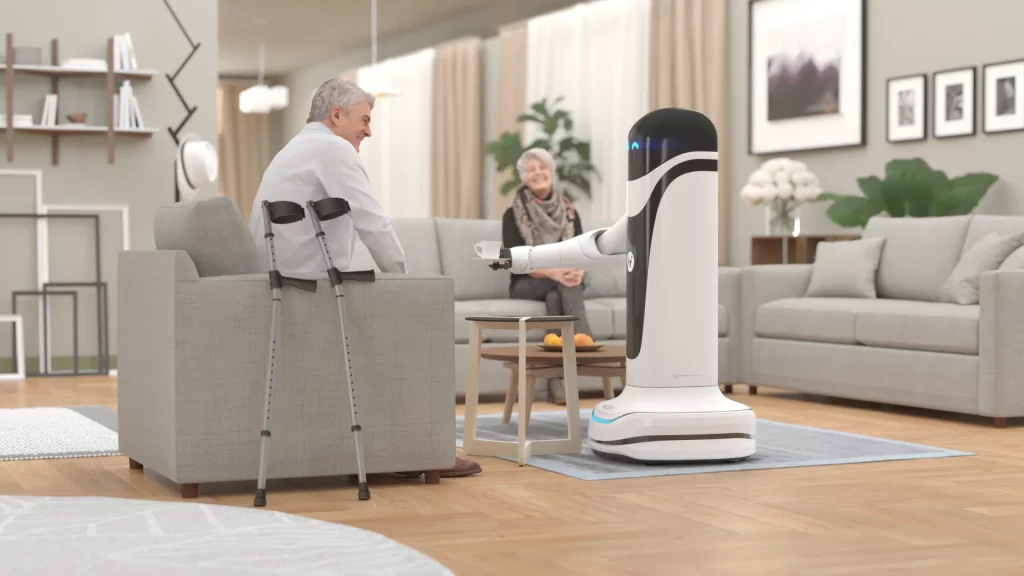I stumbled because I was surprised at how suddenly our society has found itself in a situation where we literally refer to robots as “saviours” – even if mentioned in a headline initially aimed at clicks. The ice has been broken! Robots are no longer perceived as a threat to jobs, but as what they should have always been: service providers for people. We now see robots as an opportunity to maintain our prosperity despite demographic change.
No, I don’t see a problem in the almost infinite range of capabilities that robots would then have. After all, our cognitive robots are platforms that can be used for a wide variety of applications if they are properly trained and fed with know-how. I like to compare this with a smartphone, which is for us a ticket machine, bank account, games console and map at the same time, depending on which apps are installed.
Our robots can already perceive their environment and react to it independently. They have incredible fine motor skills and can recognise people with absolute reliability. They adapt their movements in the vicinity of people in such a way that you can literally work with them hand in hand – safely. Of course, anyone who reads my blog regularly has known for a while that cognitive robots could practically be used as helpers even now in nursing homes because of these abilities.
However, is our society already prepared for this? Of course, every individual will quickly get used to a robot taking over time-consuming and unpleasant work. I’m referring more to our social system. If robotics is really going to become part of our everyday lives soon, we should quickly catch up on some homework beforehand. First, there are the very obvious ethical questions. Which tasks should and should not be performed by robots? No one objects to robots keeping our streets clean, picking up the trash, and maybe even cooking, serving, and clearing tables in restaurants. But do we want robots as nursing assistants in retirement homes? That would be possible. And as law enforcers? Even if autonomously acting robots do not pose a danger, as Hollywood sometimes wants to sell us, we still need certain rules and laws for their use.
In addition, we need to think about how our social systems will function in the future if people can no longer be found for certain jobs. What if robots really do step in as “saviours” on a large scale and take over tasks from humans? Then, at the latest, we will have to face the fact that the work of robots will also have to contribute to our social systems. We will then have to deal with such economic questions as why income from capital gains – for example, profits from shares – is not treated in the same way as labor income. There may be many good or bad reasons for this. But if there’s less and less labor income due to automation, this will become a problem at some point.
Another option, of course, would be to levy an ongoing flat-rate contribution to the social systems for every robot. If this debate had been held 50 years ago, when more and more automated machines were taking over the work of humans, we would have avoided many of our current problems. Up until now, automation has always brought financial benefits for industrial corporations. The negative consequences, e.g. growing unemployment due to the elimination of tasks for less qualified workers, then had to be shouldered by the social community.
For the next evolutionary stage of cognitive robotics – which will soon shape our everyday lives – now is the right moment to hold a public debate about what we could do better this time. Otherwise, we in Germany may soon find ourselves in the same situation with robotics as we were recently with the internet: politicians and large sections of society were overwhelmed and unready to deal with the fast-moving developments.
That should not happen to us again.

